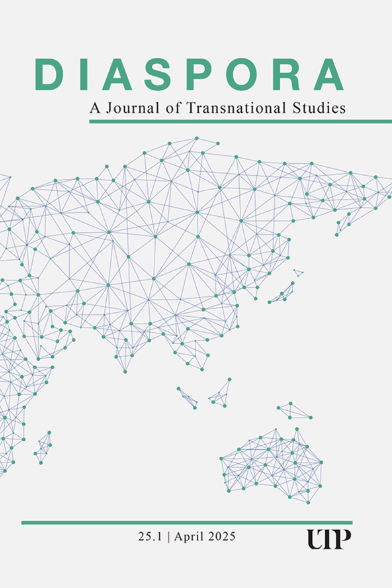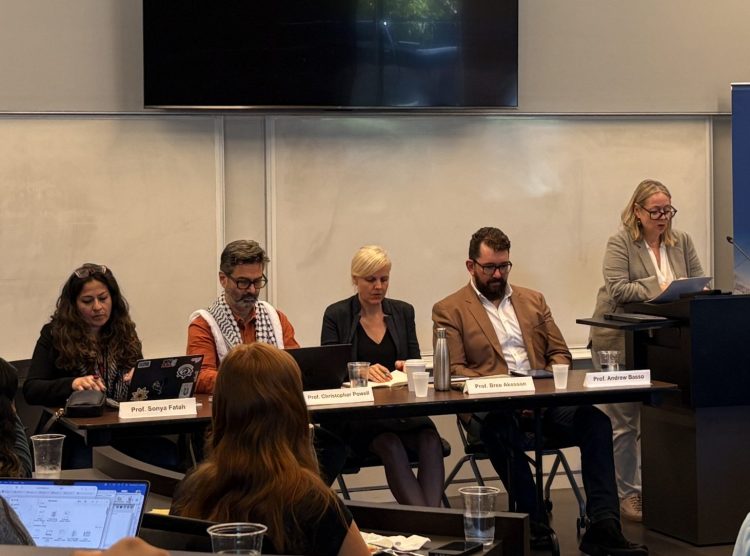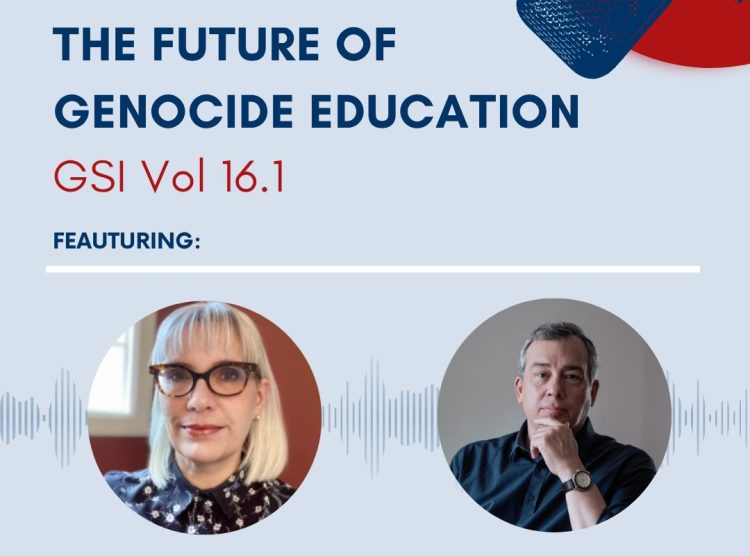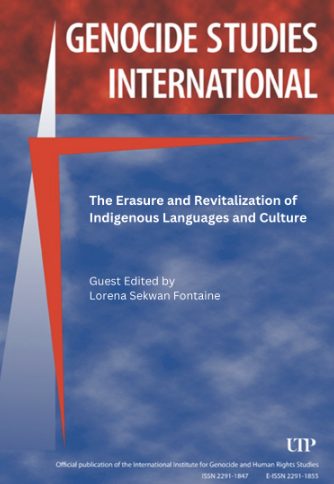“From the genocide in Gaza carried out by Israel, to the full-scale Russian invasion of Ukraine, to Azerbaijan’s forced depopulation of Armenians in Karabakh/Artsakh, to the compounded violence in South Sudan and elsewhere … the figures central to our journal—refugees, migrants, stateless and diasporic subjects – are once again caught in the threshold of erasure.”
– Editors of Diaspora: A Journal of Transnational Studies
(25.1 Editor’s Preface)
This powerful statement opens the latest issue of Diaspora (Volume 25, No.1), reflecting the moral clarity and political urgency that have long defined the journal’s mission. Each country referenced in the quote above links to a previously published article in Diaspora, underscoring the journal’s longstanding commitment to engaging with those diasporic communities that are formed and affected by political violence as described above.
Established in 1991 by the Zoryan Institute, Diaspora was the first academic journal devoted exclusively to the study of identity, migration, displacement, and belonging. It helped define and shape the emerging field of Diaspora Studies, providing a vital space for critical scholarship and reflection. For more than 30 years, it has remained a central platform for exploring the ethos of diaspora and related questions around globalization, forced migration, statelessness, and the politics of memory and return.
With each new issue, the journal continues to uphold its founding principle to allow diasporic voices to speak back, reshaping how we understand histories, identities, and futures.
In recent years, Diaspora has been led by editors Talar Chahinian (University of California), Sossie Kasbarian (University of Stirling), and Jo Laycock (University of Manchester). The latest issue of the journal (Volume 25.1) marks an exciting new chapter with the addition of Hrag Papazian (University of Southern California) and Lauren Banko (University of Manchester), two new editors who will oversee a reimagined Reviews section. Under their direction, the Reviews section will welcome a wider variety of submissions, including interviews, artworks, exhibitions, media reviews, and autoethnographic essays.
This shift seeks to bridge the gap between academic research and the everyday lives of people in diaspora, recognizing that knowledge is not only produced in institutions but also in communities, in homes, and through the intimate relations that shape everyday life.
Meet the New Diaspora Review Editors:
Lauren Banko
University of Manchester
Lauren Banko is currently a Wellcome Trust Research Fellow in Humanities in the Department of History at the University of Manchester. She completed her PhD in Near and Middle East History at SOAS, London, and is the author of The Invention of Palestinian Citizenship (2016).

Hrag Papazian
University of Southern California
Hrag Papazian is Assistant Professor of Anthropology and the holder of the Turpanjian Early Career Chair in Contemporary Armenian Studies at the University of Southern California. Papazian received his DPhil in Anthropology from the University of Oxford and was previously Assistant Professor at the American University of Armenia.
Titles from this new issue (25.2) include:
- Returning to the River: The Cherokee Diaspora’s Hydrospheric Connections by Gregory D. Smithers
- “Get Rich and Get Going”: Understanding Chinese Lifestyle Migrants to Western Countries by Grace W. F. Chau
- “Come, Dear Sister, Let’s Unite”: Integrating Feminism and Armenianness in an American Armenian Feminist Collective by Janice Dzovinar Okoomian
- Democracy by the “Other”: How Ethiopian Diaspora Communities in Virginia Engage in Political Participation by Claudine Kuradusenge-McLeod
To explore the new issue of Diaspora: A Journal of Transnational Studies, please locate access through your academic institution, or visit https://utppublishing.com/toc/diaspora/24/2. For more information about the Zoryan Institute’s publications, please visit our website at https://zoryaninstitute.org/publications/#books.







